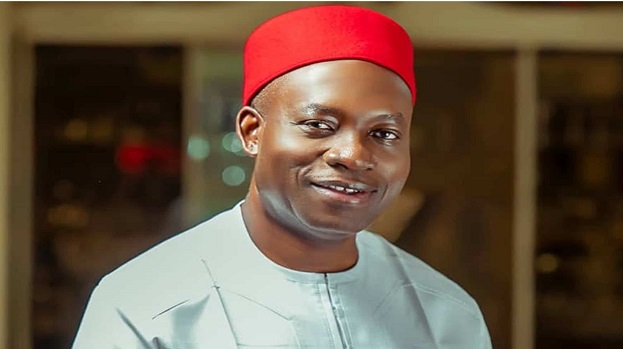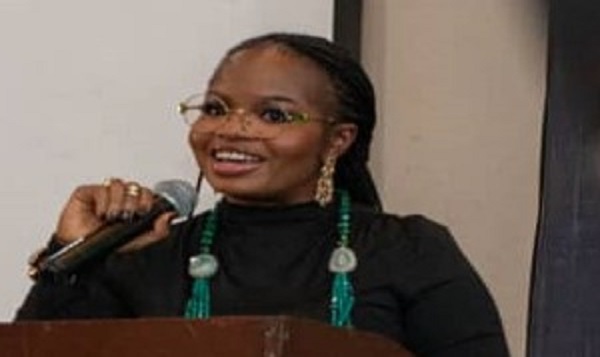News
Ezekwesili Harps on Technology as Africa’s Lasting Solution to Problems

Oby Ezekwesili, Public Policy Analyst and Senior Economic Advisor, has said that technology is the solution to problems facing Nigeria and Africa as she called for investment in infrastructure that would aid emergence of digital services in rural communities.

Ezekwesili divulged this at the weekly GageLive Instagram platform organised by Gage Awards on the theme, “Using Technology to Shape the Nigeria of The Future,” recently.
“What the digital world can offer citizens is limited. This is because it is mostly within the urban city. Beyond the urban city, the grade of the physical infrastructure – the digital infrastructure, the backbone is still not at the level of solidity, strength, performance and efficiency as should happen.”
Continuing, the BBOG co-founder noted: “Even today, when you and I are in this kind of a programme, we are not optimised because the quality of our connection is still fragile – very poor.”
She warned, however, that until Nigeria, Africa invest in the digital infrastructure that would facilitate their interconnection and their reach, “We will not be able to say that we are at a place of efficiency”.
According to the analyst, in terms of speed – a function of productivity, as long as technology and digital format are not giving us the level of speed that is a global approach of internet speed, then we are way below it.
Her words: “From the last number I checked, we were significantly more than 80 per cent below global speed in terms of internet. That is something to deal with.”
While responding to questions on the live programme, Ezekwesili highlighted that a lot of citizens were still in rural communities. And the rural environment does not make market scale for the private sector to offer digital service.
She proffered: “When there is a market failure, it is the government that must step in. So, rural infrastructure should support the kind of backbone that we need in order to provide digital content to the rural community.”
Noting that the rural communities are abode other than urban poor, she expressed that the real poverty is within the rural communities of Africa.
“We need to invest massively in the kind of infrastructure that would support the emergence of digital services in the rural communities of the continent.”
Again, she stressed on digital platforms that carry the content of what one wants to convey. “Look at digital platform for commerce, example, they are still in novelty on our continent. Now that we see what COVID-19 can do, hopefully what is going to happen is that we are going to realise that a lot of our lives will depend online”.
She, therefore, urged Africans to build – whether they are at macro or micro level platforms that enable us to convey messages and the things that are not so to print, adding that that would help enormously to expand the scope.
Sadly, she bemoaned the poor level of digital financial inclusion. “Digital financial services is something that is lacking. In the time of orthodox banking, it was difficult for banks to establish their branches all over the country.
“Even when they were mandated, many times they would set a goal for how many branches that needed to be set up. But the banks were always underperforming.
Speaking further, she added that in the same way, now that “We are going digital and trying to use technology to create financial inclusion, we still have barriers to that”
The economist, however, described one of the key barriers; forms of identification, as the major problem of Africa. “And technology is the solution to that problem of identity”.
For her, the unique identity that enables a person to become at par with the digital financial services is something that Africa would need to invest in. “And we have not yet invested in it as much as we should”.
She decried another sad part. “There is a vast body of public policy that is very necessary. Public policy is at the heart of showing readiness to migrate from one level of understanding of issues of development to a higher level of things”.
“Our public policy is trailing technology. It is way behind the curve of the rapid expansion of technology. So, you have a situation where people who are technophobes are the ones making policies around issues of technology.
To upgrade to a global standard, Ezekwesili advised: “We are going to have a problem. They don’t see how important it is to be in a hurry. We must be in a hurry. Our policies and laws have to reflect that”.
Not forgetting the many laudable series GAGE Awards has put up for the Nigerian youths, Ezekwesili commended the CEO of Gage Awards, Mr. Johnson Anorh.
GAGE Awards is an internet award conceptualised to reward excellence in digital application and online presence. It’s weekly InstagramLive show is part of the GAGE Awards plans of using its platform to shine the light on those who have used the digital space ingeniously.
In the words of the CEO, “These people who have used the digital space ingeniously share their story and get to inspire those looking to do great things on that space.”
“We have GageLive on Instagram once every week. But since the lockdown we have been having it more frequently to get to inspire those at home to do great things, since we now have time on our hands,” Anorh noted.
News
LIRS to Invoke NTAA to Recover Unpaid Taxes from Bank Accounts, Others

Lagos Internal Revenue Service (LIRS) pursuant to Section 60 of the Nigeria Tax Administration Act (NTAA), plans to ask Nigerian banks to debit bank accounts of employers who failed to remit tax liability.

This was disclosed in a recent notice on Sunday.
LIRS stressed that the move was in line with the implementation of the country’s NTAA and other new tax laws, which took effect on January 1, 2026.
“Where a taxpayer fails, neglects, or refuses to settle any established outstanding tax liability when due, LIRS may exercise its power under Section 60 to direct any of the following persons to pay the amount owed by the taxpayer:
“Banks and other financial institutions; Employers; tenants, debtors, or customers of the taxpayer; Agents, business partners, and any person holding money on behalf of the taxpayer; Any person owing money to the taxpayer, whether presently due or accruing. Once a substitution notice is issued, the person served is statutorily required to remit to LIRS the amount. Specified in the notice from funds belonging to, or payable to, the defaulting taxpayer,” the LIRS notice partly read.
Meanwhile, Taiwo Oyedele, chairman of the Presidential Committee on Fiscal Policy and Tax Reforms, weeks ago ruled out claims that the government would debit personal accounts over tax remittances.
News
Anambra Cuts Monday Pay to Kill Sit-at-Home

Anambra State will implement pro-rata salary payments for civil servants starting February 2026, targeting chronic Monday absenteeism from the long-running sit-at-home order, Information Commissioner Dr. Law Mefor announced Saturday.

Soludo
Speaking at an Awka briefing after the Executive Council’s end-of-tenure retreat, Mefor said improved security and transport have eliminated excuses for the four-year disruption, which cost the state trillions in lost revenue. “Workers enjoyed full pay despite staying away; now, no work means no pay for that day, calculated over 24 working days,” he stated.
Compliance measures include mandatory Monday clock-in forms, with markets urged to reopen fully amid bolstered security. This builds on a January 22 executive order docking 20% pay from teachers absent on Mondays.
Mefor warned that lost Mondays cripple revenue collection and productivity, rejecting alternatives like Saturday shifts as capitulation to agitators.
News
Stakeholders Demand Stronger Governance and Infrastructure to Drive Tech Adoption @ Lagos AI Summit

As AI adoption accelerates across Nigeria, leaders at the “AI in Action Now” conference 2026 have called for a balance between rapid innovation and strict regulatory governance. The event, held at the Lagos Oriental Hotel, highlighted both the doggedness of Nigerian builders and the risks of unregulated data usage.

Dotun Adeoye, Co-Founder of AI Nigeria, raised alarms over “Shadow AI”, a trend where employees upload sensitive official documents to public AI platforms. He praised the Nigerian Data Protection Commission (NDPC) for its recent aggressive stance, including multi-million-dollar fines against major banks and social media brands.
“Innovation without governance is dangerous. The regulator now has the job of educating players. We are working in partnership with them to ensure players don’t just get fined, but actually understand how to protect data locally rather than storing it abroad, ” Adeoye noted.
Addressing issues of lack of infrastructure to carry AI adoption, Conference Convener Debola Ibiyode admitted that while Nigeria lacks the traditional foundation for AI adoption, the tech community cannot afford to wait.

“The simple answer is we don’t have the infrastructure, but Nigeria has never really had infrastructure to drive anything, and we still thrive, ” Iboyode said, encouraging students and builders to look beyond current limitations. “Once we start to build based on what we have now, it will encourage those who need to provide the infrastructure to do their part. The world will not wait for us,” she insisted.
To bridge this gap, she highlighted the AI Foundry Africa, an incubator designed to mentor ideas into market-ready products.
Meanwhile, speaking to journalists on the sidelines, Biodun Ogunleye, the Lagos State Commissioner of Energy and Mineral Resources, echoed the sentiment that the government’s role is to facilitate the right environment through partnership. He emphasized that data generated from interactions with the government must have long-term value.
“We must ensure that in all facets from production to interaction with government, the tools required to ensure data has value are appreciated,” Ogunleye stated.
He concluded that through private-sector collaboration, the government can focus on its primary functions while leveraging AI to ensure the nation aspires for the future.

 General News3 days ago
General News3 days agoPalmPay User Shares Experience on Fintech Apps to Trust in Nigeria

 News3 days ago
News3 days agoStakeholders Demand Stronger Governance and Infrastructure to Drive Tech Adoption @ Lagos AI Summit

 General News3 days ago
General News3 days agoNigerians Target Self-Improvement, Business Startups in 2026 Google Data

 News3 days ago
News3 days ago35 Million Nigerians Face Acute Hunger in 2026, UN Warns

 General News3 days ago
General News3 days agoHow Inside Jobs and Policy Shocks Trigger Nigeria’s Rising Loan Crisis

 News20 hours ago
News20 hours agoAnambra Cuts Monday Pay to Kill Sit-at-Home

 E-Financial20 hours ago
E-Financial20 hours agoFirst Asset Management Receives Upgraded Ratings from Agusto &Co and DataPro

 General News20 hours ago
General News20 hours agoNigeria Treats Religious Violence as Attack on State – NSA Ribadu





















